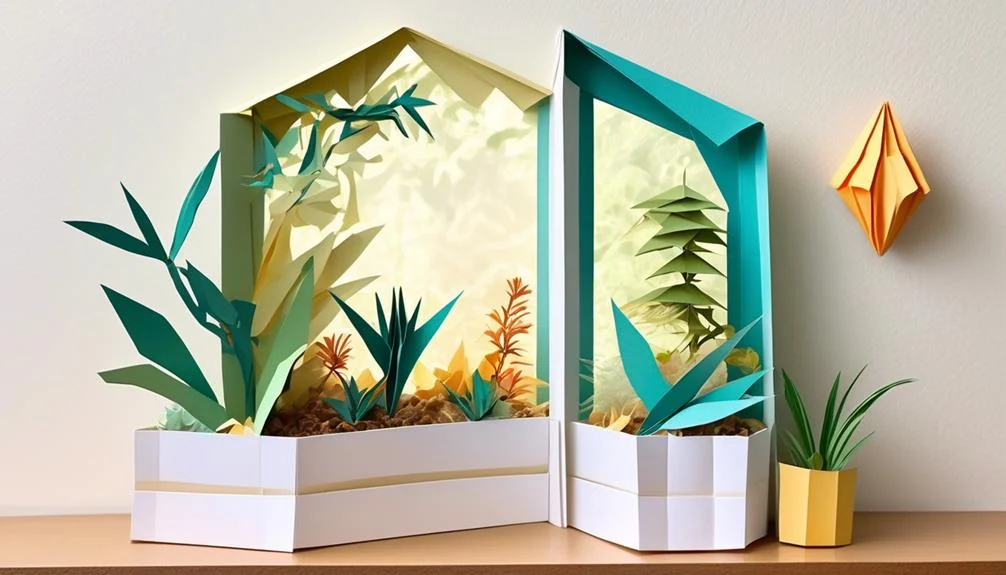Takeaways:
- Stainless steel hoses are highly durable and resistant to rust, corrosion, and extreme weather conditions, providing a cost-effective and long-lasting solution for garden maintenance.
- They offer weather and rust resistance, making them suitable for year-round outdoor use with minimal maintenance required.
- Stainless steel hoses have an aesthetic appeal with their sleek and modern design, enhancing the visual appeal of outdoor spaces.
- They are flexible and easy to use, gliding through garden beds without kinking and ensuring uninterrupted water flow for various gardening tasks.
| Pros of Stainless Steel Garden Hoses | Cons of Stainless Steel Garden Hoses |
|---|---|
| Durability | Higher Initial Cost |
| Flexibility | Limited Heat Resistance |
| Weather Resistance | Potential for Dents and Scratches |
| Lightweight Design | Heavier Than Some Alternatives |
| Kink and Tangle Resistance | Compatibility Issues with Attachments |
| Aesthetic Appeal | Not Suitable for Drinking Water |
| Low Maintenance | Stiffness in Cold Weather |
| Safe for Various Water Types | Limited Expandability |
| UV Resistance | Noise |
| Chemical Resistance | Conductivity |
Pros of Stainless Steel Garden Hoses
- Durability: Stainless steel garden hoses boast exceptional durability. They are designed to resist corrosion and rust, ensuring a longer lifespan compared to conventional hoses. This makes them a cost-effective choice over time, as they require less frequent replacement.
- Flexibility: These hoses are highly flexible, capable of bending and twisting without kinking. This flexibility is advantageous for navigating around corners, obstacles, and various garden layouts, enhancing ease of use.
- Weather Resistance: The material’s resistance to weather elements is a significant advantage. Stainless steel hoses can withstand exposure to sun, rain, and extreme temperatures, maintaining their integrity and functionality throughout various weather conditions.
- Lightweight Design: Despite their sturdy construction, stainless steel hoses are surprisingly light. This lightweight nature facilitates easy handling, storage, and transport, making them user-friendly for gardeners of all ages and strengths.
- Kink and Tangle Resistance: A notable feature of these hoses is their resistance to kinking and tangling. This ensures a consistent water flow and reduces the frustration and time wasted in untangling a hose, contributing to a more efficient watering experience.
- Aesthetic Appeal: Stainless steel hoses have a sleek and modern appearance. Their shiny, metallic look can complement the aesthetics of a contemporary garden, adding a touch of elegance to the garden setup.
- Low Maintenance: These hoses require minimal maintenance. Their sturdy construction minimizes the likelihood of damages like cracks or splits, reducing the need for repairs or intensive upkeep.
- Safe for Various Water Types: Stainless steel hoses are safe for transporting different types of water, including rainwater and recycled water, without the risk of contamination or degradation of the hose material.
- UV Resistance: The material is resistant to ultraviolet (UV) rays, preventing the hose from becoming brittle or damaged due to prolonged sun exposure, a common issue with traditional hoses.
- Chemical Resistance: Stainless steel is resistant to chemicals, making these hoses suitable for use with various fertilizers or pesticides without the risk of material degradation or contamination.
Cons of Stainless Steel Garden Hoses
- Higher Initial Cost: The initial cost of stainless steel garden hoses is typically higher than that of traditional rubber or plastic hoses. This upfront investment might be a deterrent for some buyers, despite the long-term savings due to their durability.
- Limited Heat Resistance: These hoses are not suitable for hot water use. The exterior of the hose can become hot to the touch when used with hot water, posing a risk of burns or discomfort during handling.
- Potential for Dents and Scratches: While durable, stainless steel can be prone to dents and scratches, especially when dragged over rough surfaces. This can affect the aesthetic appeal and, in severe cases, the functionality of the hose.
- Heavier Than Some Alternatives: Although lighter than expected, stainless steel hoses can still be heavier than some lightweight alternatives like fabric hoses, potentially making them less desirable for users seeking ultra-lightweight options.
- Compatibility Issues with Attachments: Some models may require specific fittings or attachments not commonly available, leading to additional costs or inconvenience in sourcing compatible parts.
- Not Suitable for Drinking Water: These hoses are generally not recommended for conveying drinking water. The materials used may not be certified for potable water, limiting their use in applications like filling swimming pools or supplying water for pets.
- Stiffness in Cold Weather: In colder temperatures, the flexibility of stainless steel hoses can decrease, making them more rigid and potentially more difficult to maneuver around the garden.
- Limited Expandability: Unlike some modern hose designs, stainless steel hoses typically do not expand and contract with water pressure. This limits their reach and flexibility in certain situations.
- Noise: Dragging or moving the hose across surfaces can produce noise due to the metal construction, which might be disruptive in quiet neighborhoods or during early morning or late evening gardening activities.
- Conductivity: Stainless steel is a conductor of electricity, posing a potential risk if the hose comes into contact with electrical sources or during thunderstorms. This makes it less safe in certain scenarios compared to non-conductive hose materials.
Advantages of Durability
The robust construction of stainless steel garden hoses offers exceptional durability, ensuring they stand the test of time and resist wear from rust, corrosion, and extreme weather conditions. As garden tools are frequently exposed to the elements, the ability to withstand harsh environments is a significant advantage. Stainless steel, renowned for its strength and resistance to corrosion, makes these hoses a reliable choice for gardeners seeking longevity in their equipment.
Moreover, the long-term value presented by stainless steel garden hoses is noteworthy. While the initial cost may be higher than that of conventional hoses, their extended lifespan translates into a cost-effective investment. The reduced need for replacements not only saves money over time but also contributes to sustainability by minimizing waste.
Flexibility and ease of use are additional benefits derived from the lightweight nature of stainless steel hoses. They are designed to be user-friendly, remaining flexible and easy to maneuver around the garden without compromising on strength. This adaptability extends to storage, as these hoses maintain their shape and do not succumb to kinking or tangling, preserving their structural integrity and ensuring consistent performance with each use.
Weather and Rust Resistance
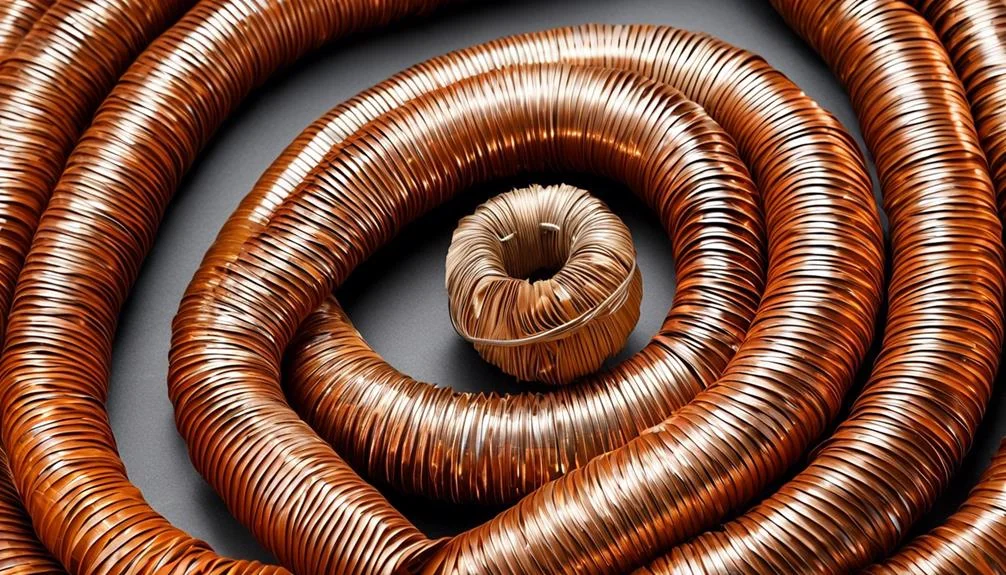
Building on their exceptional durability, stainless steel garden hoses also excel in weather and rust resistance, ensuring their unwavering performance through varying climatic conditions.
These hoses are designed to confront a multitude of environmental challenges:
- Withstand Harsh Elements:
- *Rain and Snow*: Their composition prevents any significant deterioration from continuous exposure to moisture.
- *Sunlight*: UV rays, which can degrade many materials, have little effect on the structural integrity of stainless steel hoses.
- Year-Round Outdoor Use:
- *Rust and Corrosion Resistance*: A defining feature of stainless steel is its ability to resist oxidation, meaning these hoses can be left outdoors without the risk of rusting.
- *Low-Maintenance*: This resistance translates to less upkeep, negating the need for regular replacements or repairs.
Stainless steel garden hoses provide a reliable and low-maintenance watering solution that caters to the long-term needs of garden maintenance. Their robustness against adverse weather conditions not only makes them a practical choice but also a valuable investment, offering extended service life and consistent performance.
In essence, these hoses are engineered to be as enduring as the gardens they tend to, reinforcing their position as a superior option in garden care.
Aesthetic and Design Appeal
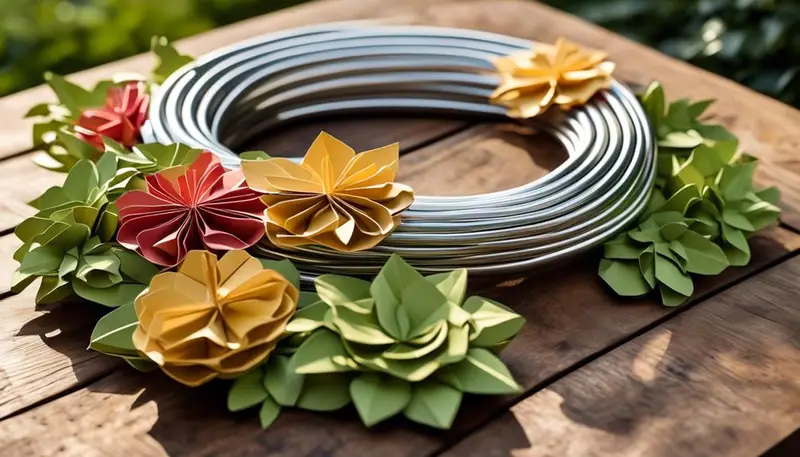
Why settle for purely functional when you can have a garden hose that combines utility with stylish design, enhancing the visual appeal of your outdoor space? Stainless steel garden hoses offer a sleek and modern aesthetic that can elevate the look of any garden or outdoor setting. Their metallic finish provides a contemporary and polished appearance, which is a significant departure from the more traditional rubber hoses.
This design appeal is not just about the hose itself but also its contribution to the overall elegance of the garden. A stainless steel hose can serve as a sophisticated accessory, complementing various outdoor decor styles with its smooth and shiny exterior. The lustrous surface gives it a visually appealing and high-end look that can add a touch of class to the functionality of watering your plants.
In essence, stainless steel garden hoses merge the practicality of daily watering requirements with a refined aesthetic. They transform a mundane task into a more pleasurable experience by incorporating a beautiful tool into the mix. This harmony between form and function ensures that your garden space doesn’t just thrive but also impresses with its attention to detail and design.
Flexibility and Ease of Use
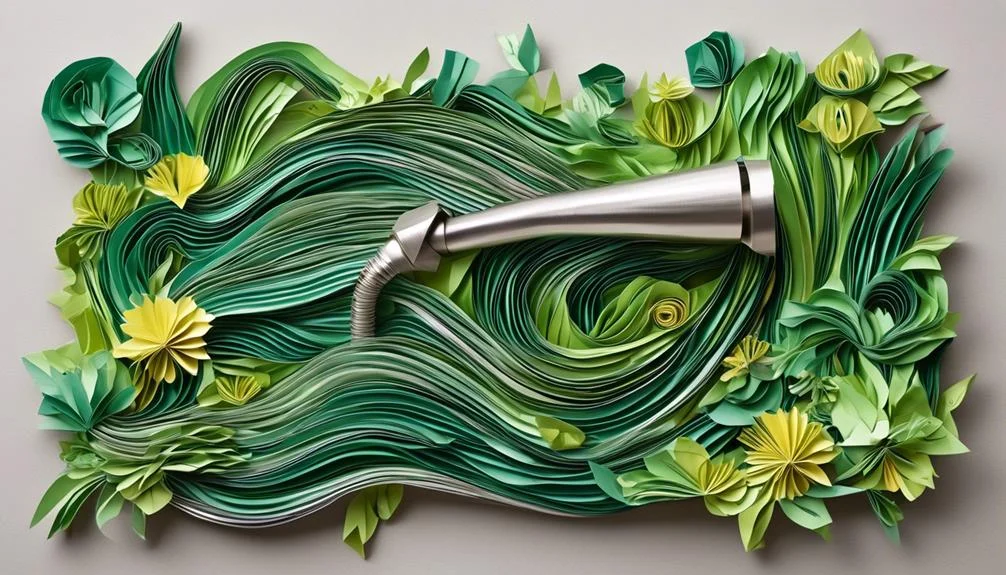
Effortlessly gliding through garden beds, stainless steel hoses offer unmatched flexibility and ease of use, ensuring gardeners can navigate around obstacles without the frustration of kinks or tangles. Their lightweight nature contributes significantly to their maneuverability, making them a go-to choice for gardeners of all ages and strengths. The flexibility inherent in these hoses is not just about avoiding the annoyance of untangling a hose but also relates to the practicality of reaching every corner of the garden with ease.
- User-Friendly Characteristics:
- Surprisingly lightweight for easy handling and movement.
- Highly flexible, preventing kinks and ensuring uninterrupted water flow.
- Durability and Longevity:
- Resistant to kinking, which prolongs the hose’s life.
- Suitable for a variety of gardening tasks, from simple watering to more complex irrigation setups.
The combination of these features means that stainless steel garden hoses are both practical and reliable. Gardeners can enjoy a hassle-free watering experience, focusing on the health of their plants rather than the tools in their hands. The adaptable nature of these hoses makes them an invaluable asset for any gardening enthusiast looking for a durable, easy-to-use solution for their watering needs.
Potential Health and Safety Issues
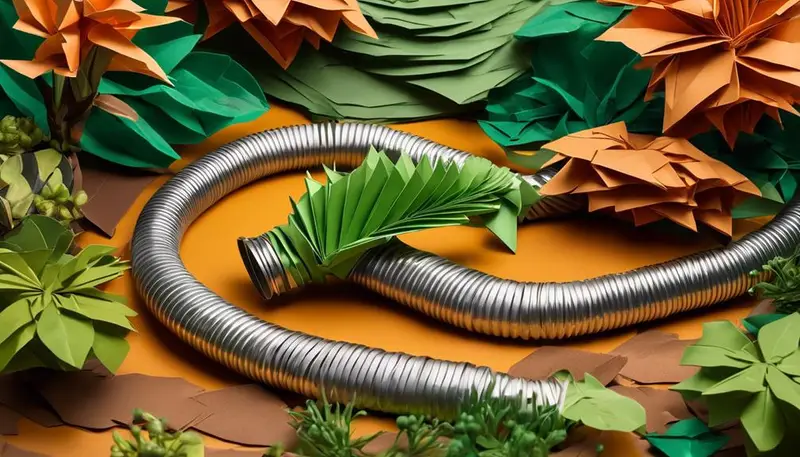
While stainless steel garden hoses offer exceptional flexibility and user-friendly characteristics, it is crucial to address the potential health and safety concerns associated with their use in gardening activities.
Notably, these hoses are not intended for transporting drinking water. Users should exercise caution to ensure that the hoses are not mistakenly used for such purposes, as they may not meet the necessary standards for potable water.
Additionally, the metallic exterior of a stainless steel garden hose is prone to heating up when left in direct sunlight. This can present a burn hazard to unwary handlers; thus, it is imperative to be aware of this risk and manage the hose appropriately to prevent injury.
The necessity of special fittings for some stainless steel hoses could introduce complexity in installation and possibly incur extra expenses, which must be considered during purchase and setup.
Concerning the non-toxic nature of stainless steel, it is important to verify the safety of the internal materials, especially if the hose will be used to water edible plants. The interior lining should be free of harmful substances to ensure that the gardening process remains healthy and safe.
Lastly, similar to rubber hoses, stainless steel hoses can also become quite hot in high temperatures, warranting careful handling during use to avoid accidents.
Cost Considerations
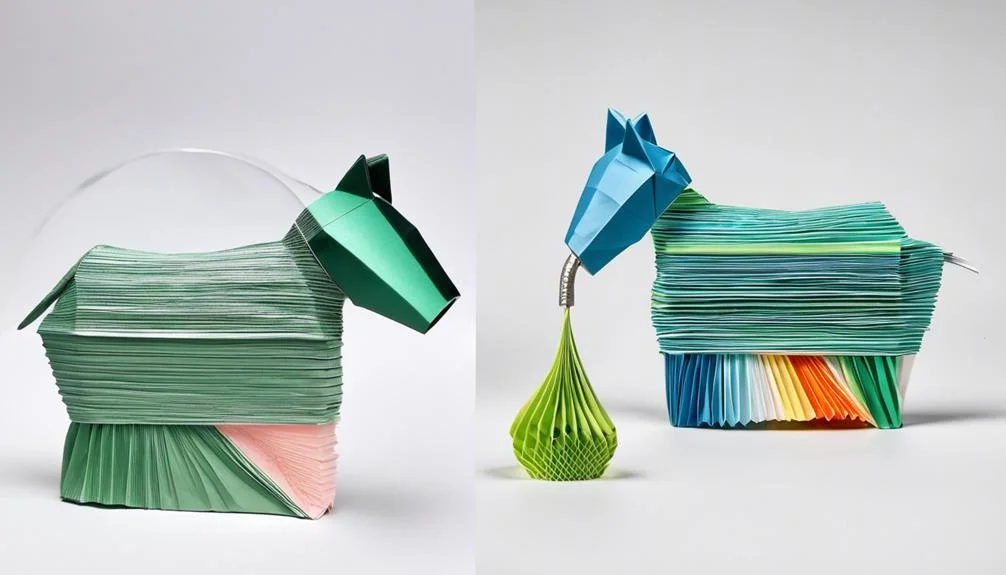
Although initially more costly, stainless steel garden hoses offer a valuable long-term investment due to their durability and reduced need for replacement. The upfront price tag of a stainless steel hose is justified by its longevity and resilience, ensuring that it withstands the rigors of regular garden use without the frequent replacements associated with standard hoses.
The cost benefits of stainless steel garden hoses include:
- Durability:
- They resist punctures, kinks, and corrosion.
- Less prone to damage from UV rays and adverse weather conditions, reducing the need for repairs or replacements.
- Long-Term Savings:
- The extended lifespan of stainless steel hoses means fewer purchases over time.
- Savings accrue from not having to replace hoses as often as traditional rubber or vinyl options.
However, there are additional considerations that can impact the cost:
- Special Fittings:
- May require specific connectors that can add to the initial investment.
- Ensuring compatibility with existing watering systems may incur extra expenses.
- Weight and Portability:
- Surprisingly lightweight, they offer ease of use and transport.
- Portability eliminates the need for multiple hoses for different areas, potentially reducing overall costs.
Maintenance and Repair Tips
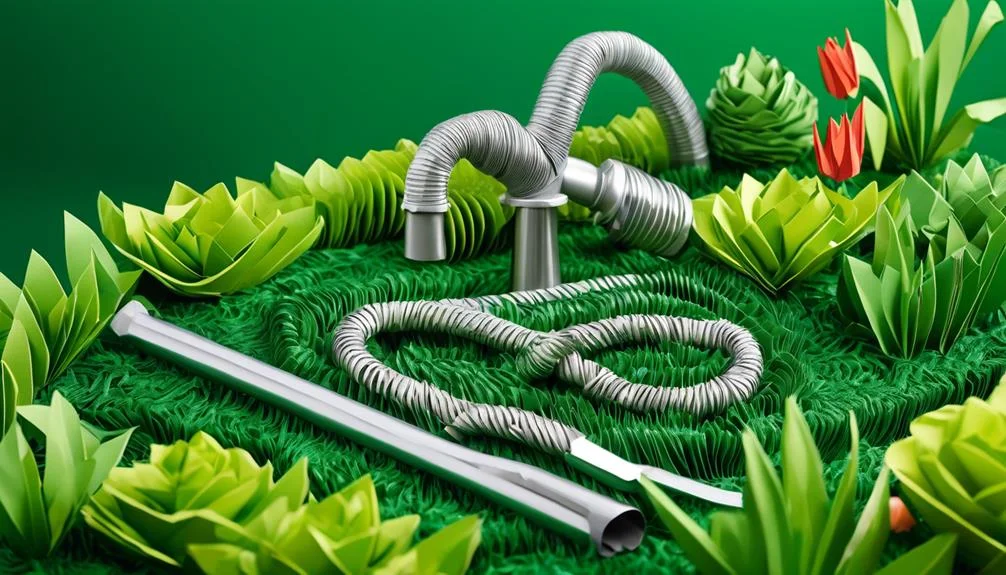
Proper maintenance is essential to extend the lifespan and ensure the reliable performance of stainless steel garden hoses. To maintain the durability and functionality of these hoses, users should regularly inspect for any indications of deterioration, such as wear, tear, or damage. This vigilance helps in detecting issues early and addressing them before they exacerbate.
After each use, it is advisable to clean the hose thoroughly. Removing dirt, debris, and any other foreign particles will prevent buildup that could potentially interfere with water flow or damage the hose’s structure. Proper storage is also crucial. Care should be taken to avoid kinking or tangling, which could stress the hose material and lead to weakening or failure over time.
Fittings and connectors are pivotal to the hose’s operation, and inspecting them periodically for damage is necessary. Should any part of the hose assembly show signs of malfunction, replacing these components promptly will ensure continuous optimal performance.
In the event of a need for repairs, it is recommended to seek advice from the manufacturer or consult with a qualified professional. They can provide the proper guidance and assistance required for the correct maintenance and repair of stainless steel garden hoses, thus safeguarding their longevity and effectiveness.
Conclusion
In conclusion, stainless steel garden hoses present a robust option for gardening needs. They offer superior durability, resistance to weathering, rust, and UV damage, and an appealing aesthetic.
Their kink-proof nature and ease of use enhance the gardening experience, while also mitigating potential health risks associated with chemical leaching.
Although initial costs may be higher, the longevity and minimal maintenance requirements can render them a cost-effective solution over time.





